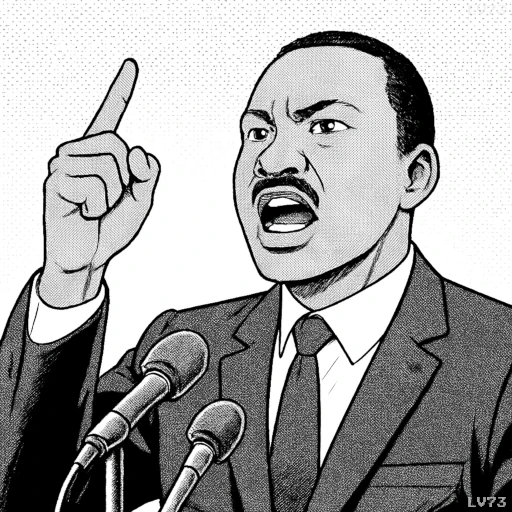“I am not interested in power for power’s sake, but I’m interested in power that is moral, that is right and that is good.”

- January 15, 1929 – April 4, 1968
- African American
- Pastor and civil rights leader
table of contents
Quote
“I am not interested in power for power’s sake, but I’m interested in power that is moral, that is right and that is good.”
Explanation
In this quote, King distinguishes between power as a means of control and power as a force for moral good. He rejects the pursuit of power for selfish or authoritarian purposes, emphasizing instead that power should serve higher ethical values—justice, righteousness, and compassion. King believed that power becomes meaningful and valuable only when it is used to uplift others and promote positive change.
This perspective was central to King’s leadership in the Civil Rights Movement, where he sought not dominance but the empowerment of oppressed communities and the advancement of justice. King’s approach was to wield power responsibly and thoughtfully, aiming to create a society where dignity and equality could flourish. For him, true power lay in moral courage and the ability to inspire others toward positive action.
In today’s context, King’s words remind us that power, whether in leadership, influence, or personal capacities, should be exercised with integrity and purpose. Leaders, activists, and individuals alike are called to consider whether their actions align with values of fairness and empathy. King’s quote encourages us to see power not as a goal but as a tool for fostering justice and goodwill—a reminder that the most impactful power is that which serves others and seeks the betterment of all.
Would you like to share your impressions or related stories about this quote in the comments section?


